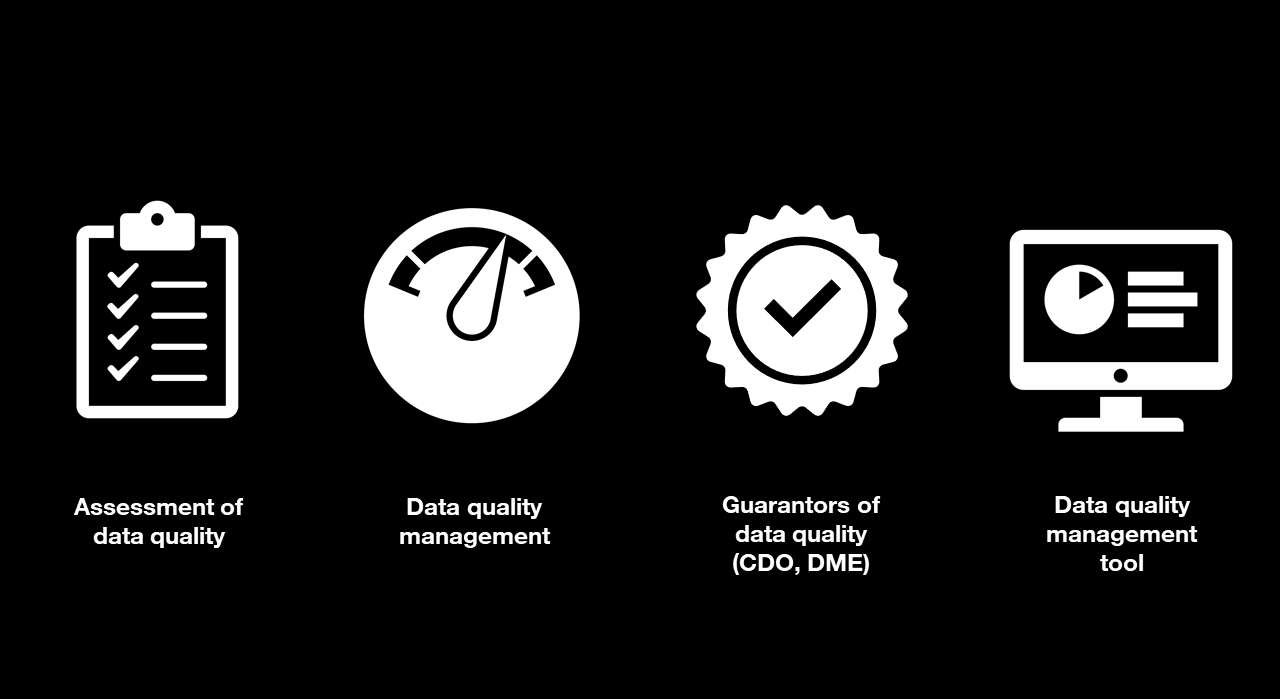What are the major challenges for Big Data?
Big Data is all the data generated by internet users and collected by companies. The volume of data to be processed, which was already huge, is constantly increasing, requiring more and more Data Centres and faster networks, such as 5G. The challenges for Big Data are growing in tandem, to become truly colossal. Find out for yourself.
Contents:
The major challenges for Big Data
Data developments are truly extraordinary. The latest estimates from Statista - a statistical data specialist - suggest that there were already 2 zettabytes (so 2 billion terabytes) of digital data passing through the web in 2010. By 2020, that figure had been multiplied by 30 to reach 64 zettabytes, and the forecast is for 180 zettabytes by 2025. This growth is caused by increasing numbers of connected objects (around 30 billion worldwide), ever growing internet access, and developments in Cloud Computing. So, the challenges for Big Data are considerable.
Keeping the information safe
Most of the data collected comes from areas of personal life. User and consumer accounts enable companies to collect precious information. This information varies in sensitivity, but all the data belongs to people. It is therefore essential to protect this data.
Europe, for this very reason, has instituted the General Data Protection Regulation, known as the GDPR. It came into force on 25 May 2018, and it outlines security requirements that must be followed when collecting and storing data. Consent to the collection and use of data must be explicit and “positive”, meaning that the user chooses which data they are happy to send. Pre-ticked boxes to help collect information are no longer allowed.
Companies, applications, and websites that do not follow the regulation risk major fines. So, access to your databases must be very securely protected.
Ensuring good quality information
To optimise the returns from Big Data, it is essential that the data collected is good quality. Accurate and detailed information can help marketing departments correctly meet the expectations and needs of consumers, for instance. In contrast, imprecise or incorrect data leads to errors of assessment, and will sabotage a company’s marketing strategy.FE
Here are some examples of actions to take to make the most of Big Data and succeed with your sales strategies:
- Assess data quality: inexact, non-compliant, not checked, unreliable, static, dormant, etc.
- Manage data quality.
- Empower those with responsibility for data quality: CDO (Chief Data Officer), DME (Data Management Executive), etc.
- Use a data quality management tool.
In other words, companies that audit the quality of their data and adopt effective analysis procedures avoid problems, including the risks of Big Data.
 |
Optimising processing for Big Data
How Big Data is managed will depend on the company’s type of activity. Real-time processing of digital data can help with the commercial optimisation of applications and websites. Streaming platforms (Spotify, Netflix) are a good example: they give their customers a quality user experience by recommending new products suited to their tastes.
Big Data is arriving in huge quantities. Companies must adopt solutions to manage it that suit their activities. These solutions will give the data meaning and carry out the necessary real-time processing. The idea is to improve the company’s services and offers.
Ensuring proper internal organisation
Big Data can be a source of information for various departments within a company: marketing, finance, sales, etc. You will be able to derive the most benefit from Big Data by creating a synergy between the professionals in your enterprise. The head of marketing will truly benefit from communicating with the statistician, the sales manager from talking to the marketing department, and so on.
More than ever, these new digital technologies require better work organisation for clearer exchanges.
Putting human beings at the centre
Beyond figures and information, Big Data is built from representations of the lives of actual human beings. These people have expectations and preferences that companies can satisfy. So long as they make the consumer the centre of all their focus.
The data collected by the various digital technologies is a major aid to sell more, but above all it represents an essential way to sell better. And this aspect of Big Data is a fundamental challenge. Because consumers are becoming ever more demanding. If you fail to put them at the centre of the decision-making process, even inadvertently, you risk financial loss. Instead, there are specialised teams to handle these challenges.
The societal implications of Big Data
The companies generating Big Data, GAFAM (Google, Amazon, Facebook, Apple and Microsoft) in particular, can sometimes be ahead of the authorities when it comes to collecting personal data. This means companies using Big Data have responsibilities to the people who are the source of that data.
One of the promises of Big Data is to offer services and products that are better matched to people’s needs. But there are also threats to their privacy: data leaks, malicious use, etc. This is why companies are becoming the guarantors of the security of the data collected.
See also: